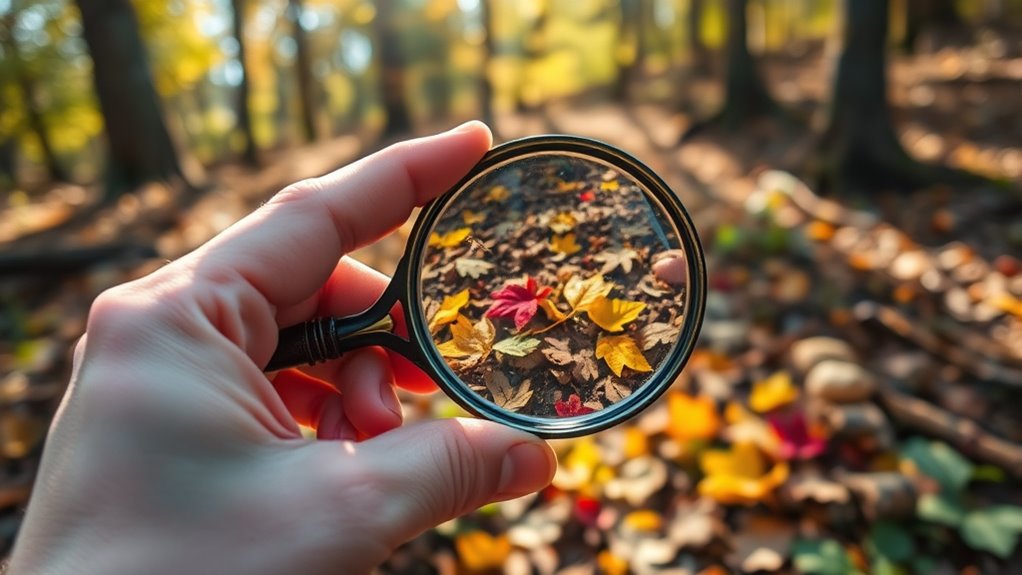Having an inquisitive mindset can boost your mental health by turning stress and setbacks into opportunities for growth. When you’re curious, you’re more likely to explore different perspectives and solutions, which builds resilience and reduces feelings of being overwhelmed. It helps you accept vulnerabilities and understand your emotions better, decreasing anxiety. By fostering curiosity, you can create a positive cycle of growth and emotional strength—keep exploring how this mindset can make a difference for you.
Key Takeaways
- An inquisitive mindset promotes cognitive flexibility, helping individuals adapt to uncertainties and reduce anxiety caused by rigid thinking.
- Curiosity transforms stress into growth opportunities, fostering resilience and quicker recovery from setbacks.
- Exploring thoughts and feelings through curiosity encourages self-awareness, which strengthens emotional resilience.
- Engaging in new experiences and learning boosts mood, decreases loneliness, and supports mental well-being.
- A curious outlook encourages proactive problem-solving and self-improvement, mitigating feelings of helplessness and worry.

Have you ever wondered how curiosity affects your mental health? It’s a powerful force that can shape how you handle stress, adapt to change, and recover from setbacks. When you nurture your curiosity, you develop emotional resilience—the ability to bounce back from difficulties more quickly. This trait helps you manage anxiety because instead of feeling overwhelmed by unfamiliar situations or worries, you see them as opportunities for discovery. Curiosity encourages you to approach challenges with an open mind, which in turn strengthens your capacity to cope with adversity. By consistently seeking new information and understanding, you build a mental habit of resilience that buffers you against the negative effects of stress.
Nurturing curiosity builds resilience and helps manage anxiety by transforming challenges into opportunities for growth.
Moreover, curiosity enhances your cognitive flexibility—the skill to shift your thinking and adapt your perspectives. When your mind is inquisitive, you’re more willing to explore different viewpoints and consider alternative solutions. This flexibility is essential in reducing anxiety because it prevents you from getting stuck in rigid thought patterns that often amplify worries. Instead of catastrophizing or obsessing over what could go wrong, you learn to see multiple possibilities and adapt your responses accordingly. As you become more cognitively flexible, you gain confidence in your ability to navigate uncertainty, which diminishes feelings of helplessness and fear.
Engaging your curiosity also means you’re more likely to question negative assumptions and challenge unhelpful beliefs. This proactive approach prevents anxiety from spiraling out of control, as you focus on understanding rather than avoiding or suppressing difficult emotions. When you’re curious about your own thoughts and feelings, you create a safe space for self-exploration. This process fosters emotional resilience because it helps you accept your vulnerabilities while empowering you to learn from them. Instead of viewing anxiety as a threat, you see it as a signal to investigate further, leading to greater self-awareness and emotional strength.
Additionally, curiosity motivates you to seek out positive experiences and meaningful connections, which are essential for mental health. Exploring new hobbies, engaging in learning, or connecting with others over shared interests can boost your mood and decrease feelings of loneliness or despair. These activities reinforce your sense of purpose and belonging, further reducing anxiety. Furthermore, understanding the role of visual clarity in creating a calming environment can help you optimize your space for mental well-being. Overall, cultivating a curious mindset creates a cycle of growth—bolstering emotional resilience, sharpening cognitive flexibility, and fostering a healthier outlook on life’s uncertainties. By embracing your natural curiosity, you equip yourself with essential tools to manage your mental health more effectively every day.
Frequently Asked Questions
Can Curiosity Help During Times of Acute Mental Health Crises?
Yes, curiosity can help during acute mental health crises by encouraging you to explore your feelings calmly. Focus on mindfulness practices to stay present, and ask gentle questions about what you’re experiencing. This inquisitive approach boosts emotional regulation, helping you manage overwhelming thoughts. Instead of fighting your feelings, curiosity allows you to observe and understand them, reducing anxiety and fostering a sense of control in difficult moments.
Are There Risks to Being Overly Curious About Personal Issues?
Boundless exploration can seem exciting, but beware of overanalyzing tendencies. Being overly curious about personal issues risks spiraling into excessive self-scrutiny, which might increase anxiety rather than reduce it. You could get trapped analyzing every detail, losing perspective and clarity. While curiosity fuels growth, balancing it helps prevent emotional overwhelm. Stay mindful of your limits—sometimes, knowing when to pause is the key to maintaining mental well-being.
How Does Curiosity Differ From Obsessive Thinking in Mental Health?
Curiosity differs from obsessive thinking because it fosters a perception shift that promotes learning and growth, while obsessive thinking traps you in repetitive, unhelpful patterns. When you’re curious, you actively seek understanding, building emotional resilience. Obsessive thoughts, however, amplify anxiety and hinder progress. By cultivating curiosity, you can maintain a healthy balance, reduce worry, and develop a more positive outlook on challenging situations, ultimately strengthening your mental well-being.
Can Curiosity Improve Relationships and Social Interactions?
Think of curiosity as a bridge that connects you to others. When you show genuine interest, you boost your emotional intelligence and build trust. This openness encourages meaningful conversations, strengthens bonds, and fosters empathy. Your inquisitiveness invites others to share more about themselves, making your relationships richer and more authentic. By staying curious, you create a positive cycle that enhances social interactions and deepens your connections.
What Are Practical Ways to Cultivate Curiosity for Mental Well-Being?
You can cultivate curiosity for mental well-being by practicing mindful exploration daily. Start by asking open-ended questions and genuinely seeking answers, which builds inquisitive habits. Engage in new activities or hobbies to spark your interest and challenge your perspective. Keep a curiosity journal to track insights and reflections. By intentionally nurturing your curiosity, you’ll foster resilience, reduce anxiety, and develop a more positive, inquisitive mindset that benefits your mental health.
Conclusion
Imagine your mind as a garden. When you nurture curiosity, you allow new ideas and perspectives to grow, filling the space with vibrant, resilient plants. Studies show curious people experience less anxiety because they see challenges as opportunities rather than threats. Just like tending a garden keeps weeds at bay, fostering curiosity keeps worry from taking over. Embrace your inquisitiveness—your mental garden will flourish, and anxiety will have less room to take root.









